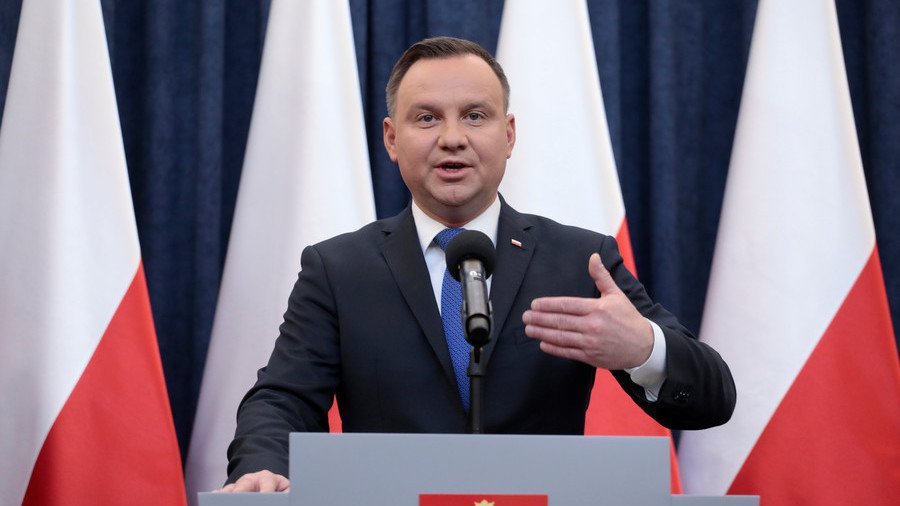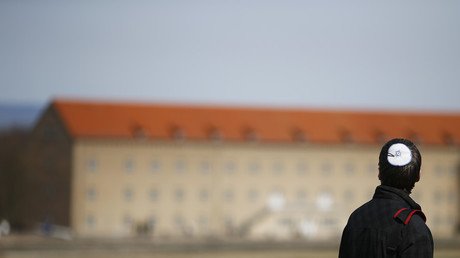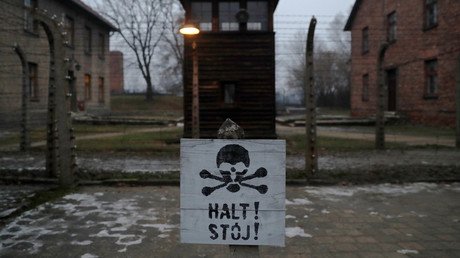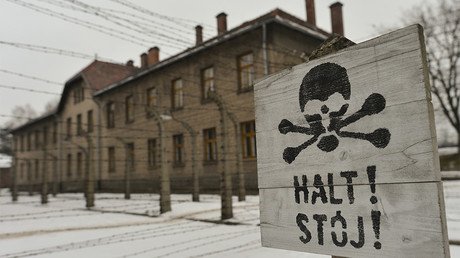‘We’re not to blame, but please forgive Poland,’ president tells Jews over 1968 persecution

Polish President Andrzej Duda has apologized to Jews who were kicked out of the country in the anti-Semitic campaign of 1968. At the same time though, Duda asserted that Warsaw bears no responsibility for the country’s past.
“The free and independent Poland of today, my generation, is not responsible and does not need to apologize. To those who were driven out then… I’d like to say please forgive the Republic, Poles, the Poland of that time for having carried out such a shameful act,” Duda said as cited by AFP.
Fifty years ago, more than 10,000 Jews were forced to leave Poland after being sacked from their jobs and accused of working against the country by the media and participants of staged mass rallies. The anti-Semitic campaign, led by Interior Minister Mieczyslaw Moczar, was the result of struggles in elite Polish circles.
It was also a response to the Six-Day War of 1967, an Israeli-Arab conflict, which saw the Jewish State occupying East Jerusalem, the West Bank and the Golan Heights, drawing the condemnation of the USSR and other Communist states.
Duda’s apology comes at a time when tensions are running high between Warsaw and Jerusalem over new Polish legislation which outlaws blaming Poles for Nazi crimes committed on Polish soil, and makes using the phrase “Polish death camps” illegal. The standoff began as Israel and Jewish groups from around the globe argued that the law was an attempt by the Poles to whitewash their past.
The head of the Polish National Security Council, Pawel Soloch, was to visit Israel in early February, but the visit was suspended while a group of Israeli MPs demanded the country’s Holocaust denial law be amended. The bone of contention was criminalizing efforts to diminish cooperation with the Nazis. Swastikas and anti-Polish slogans were also painted on Poland’s embassy in Tel Aviv.
Polish officials have been adding fuel to the fire by making controversial statements, such as that of Prime Minister Mateusz Morawiecki, who said last month that there were not only Jewish victims, but also “Jewish perpetrators” in the Holocaust. Presidential advisor Andrzej Zybertowicz also explained Israel’s furious reaction to the legislation in terms of a “feeling of shame at the passivity of the Jews during the Holocaust.” Polish priest and editor-in-chief of Catholic magazine, Henryk Zielinski, made headlines after claiming that Jews have “different concept of truth”, as something that “serves Israel’s interests.”
READ MORE: US Jewish group removes offensive ‘Polish Holocaust’ video
An estimated 6 million Jews, around two-thirds of the Jewish population of Europe, were killed by the Nazis, including at the Auschwitz, Sobibor and other death camps, which operated on the territory of occupied Poland from 1939 to 1945.
Think your friends would be interested? Share this story!















